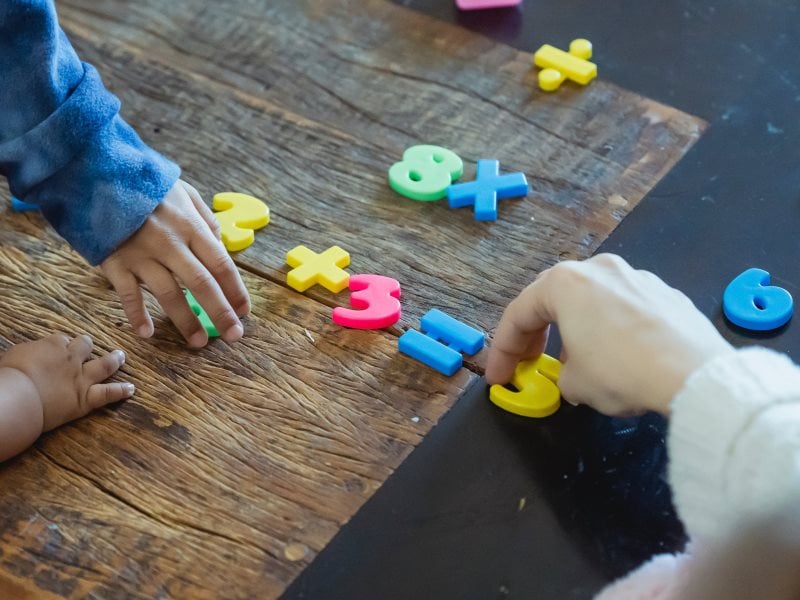 Your child has completed their first year of grade school and is on their way to becoming a well-rounded person! Although every child is an individual, there are some things your child should have learned by age 7. These milestones are guidelines, not rules, and any concerns should be brought up with their teacher or doctor.
Your child has completed their first year of grade school and is on their way to becoming a well-rounded person! Although every child is an individual, there are some things your child should have learned by age 7. These milestones are guidelines, not rules, and any concerns should be brought up with their teacher or doctor.
Academics and Language
Children in early grade school years can show a lot of fast growth in their mental abilities. By age 7, they should know left from right and day from night. They should also be able to tell time and repeat at least 3 numbers backwards. Even further, they should understand the concept of numbers well.
Your child will also be able to speak better and be able to follow a longer series of commands than they could at age 6. Your child should also be better at explaining what has happened, how they feel, and what they think. If they haven’t already done so, they will also know that some words have more than 1 meaning, allowing them to understand jokes and puns. You should encourage them to develop their sense of humor, even if their jokes aren’t particularly good.
Social and Emotional Developments
Your child is likely becoming more and more independent from you and their other parents and guardians. Instead, they are more interested in peer acceptance and are learning to cooperate and share. They also want to try and show how big or grown-up they are, which might lead to some risky or dangerous behaviors, so make sure to watch them closely.
Although you will notice that boys tend to play with other boys and girls with girls, it’s important to let your child make their own choices about sports and toys. Make sure you give them a range of diverse and non-stereotypical choices. They should also have the skills and attention span to understand teamwork, so team and organized sports will be fun and engaging for them.
Something to watch out for is some negative behaviors. With all these cognitive and social developments, lying, cheating, and stealing may start to show up. This is a normal part of children figuring out where they fit, the difference between right and wrong, and what’s acceptable. However, it’s important to make sure these behaviors aren’t the result of mental health issues, stress, or bullying. It can also be a red flag for your child having a learning disability if they are acting out in class frequently, so this would be a good time to catch it.
Every child is special, and it’s important to make sure you understand your child’s strengths and weaknesses before worrying about not meeting specific milestones. Your child’s teachers, doctors, and friends can help you figure out if anything is amiss. Your child has a lot of growing still to do, enjoy the journey!
Source: https://www.webmd.com/parenting/guide/child-at-7-milestones#1Sign up for a free assessment today so we can help your child discover the genius within them.
We cannot wait to meet you.
Source: https://www.webmd.com/parenting/guide/child-at-6-milestones#2





